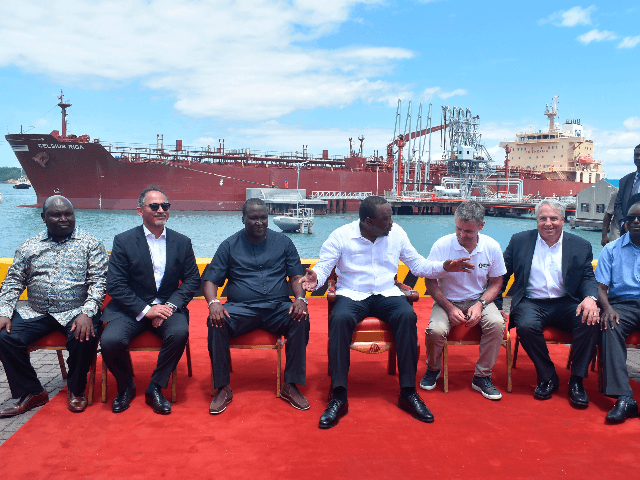The head of a special U.S. development program will visit Kenya this week to hold initial talks over the possibility of providing $350 million towards a major infrastructure project, local media reported on Monday.
The CEO of the U.S. sponsored Millennium Development Corporation (MCC), Sean Cairncross, said in a press briefing last week that Kenya is making “excellent progress” toward meeting necessary criteria for the funding.
Criteria for funding largely revolves around having low levels of corruption, a test that Kenya has failed for the past decade. However, the MCC last month approved Kenya for its first “threshold program,” entitling it to funding of between $20 million and $30 million in order to step up their crackdown on graft.
“Kenya must make additional progress in controlling corruption before it can be deemed eligible for an MCC compact,” said Cairncross. “The country’s standing in that regard is determined by assessments on the part of the World Bank and other third-party data sources.”
Successfully cracking down on corruption would then allow Kenya access to a “compact arrangement with the MCC,” described as which normally involves a grant of up to $350 million in funding for infrastructure projects.
“Corruption does not have to be eradicated in order for Kenya to qualify for an MCC compact,” he explained. “Eligibility is assessed on the basis of a trend toward dealing with that corruption and a willingness to engage government resources and political will to take those issues on.”
The MCC, founded by Congress in 2004, states its mission as forming “partnerships with developing countries who are committed to good governance, economic freedom and investing in their citizens.” Since its inception, the organization has handed out around $8 billion worth of grants to 25 developing countries, 13 of which are in Africa.
It will not be the first time that Kenya has been the recipient of an MCC grant. In 2007, the country entered into a program aimed at improving its public procurement systems, health services and delivery, and monitoring capabilities for collecting data. However, its record on corruption has repeatedly excluded them from further grants.
The MCC’s involvement follows years of Kenyan government officials attempting to get closer to and cash in on communist China. In October, China announced the second phase of its $5 billion Standard Gauge Railway project, intended to connect Kenya to Rwanda and Uganda. Workers on the project have repeatedly complained of being forced to operate under a system of “apartheid” racism by their Chinese supervisors – forced to eat lunch separately, take separate transport to construction sites, and prohibited from using Mandarin language instruction manuals.
In 2018, authorities deported a Chinese motorcycle dealer caught on tape referring to one of his workers, and Kenyan President Uhuru Kenyatta, as “monkeys.”
Described by the Council of Foreign Relations as the “most ambitious infrastructure investment in history,” the Belt and Road Initiative is a global development strategy adopted by the communist regime in 2013 aimed at extending Chinese influence across the globe. Part of this strategy involves connecting China with Africa and Europe via land and maritime networks and is expected to require more than $1 trillion in investments by its completion in 2049.
Last year, the Kenyan government was forced to ask the World Bank for a $740 million loan to help meet debt payments estimated at around $50.4 billion, most of which is owed to China. When countries such as Kenya fail to meet payments, China can take over the collateral, increasing its economic and potential military influence around the world.
Follow Ben Kew on Facebook, Twitter at @ben_kew, or email him at bkew@breitbart.com.

COMMENTS
Please let us know if you're having issues with commenting.